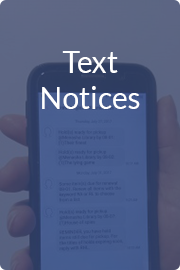CHAPTER VII
ELISHA D. SMITH PUBLIC LIBRARY
PERSONNEL POLICY
A. HIRING PRACTICES
B. SALARIES & WAGES
C. ATTENDANCE
D. LEAVES
1. COMPENSATORY LEAVE
2. VACATION
3. HOLIDAYS
4. FLOATING HOLIDAYS
5. SICK LEAVE
6. FAMILY AND MEDICAL LEAVE ACT (FMLA)
7. FUNERAL LEAVE
8. JURY LEAVE
9. MILITARY LEAVE
10. UNPAID LEAVE
E. BENEFITS
F. STAFF DEVELOPMENT
G. TRAVEL REIMBURSEMENT
H. EVALUATIONS
I. PERSONNEL FILES
J. DISCIPLINARY PROCEDURES
K. ACCOMMODATIONS FOR THOSE WITH DISABILITIES
L. HARASSMENT, DISCRIMINATION, AND RETALIATION
M. HEALTHY WORKPLACE
N. GRIEVANCE PROCEDURE
O. TERMINATION
The policies and procedures described herein do not constitute a contract of any kind, nor are they a promise of continued or guaranteed employment. Final interpretation and implementation of any parts of this policy are vested solely with the library director. Only the Board of Trustees may modify this policy.
City property, such as lockers, desks, and file cabinets are not the private property of the employee. There is to be no expectation of privacy with regard to their contents, and they are subject to inspection as a matter of routine, on a random basis or at the discretion of the library director. The library reserves and will exercise the right to review, audit, intercept, access and disclose all matters on the library’s electronic information systems at any time with or without employee notice, and such access may occur during or after working hours. The use of a login name and password do not guarantee confidentiality, guarantee privacy, or restrict the library’s right to access electronic communications or information systems and should not lead employees to expect privacy with respect to messages sent or received. The use of passwords for security does not guarantee confidentiality.
Library record confidentiality: Names of library patrons, the information held in their library records and how they use the library is expected to be strictly upheld as confidential by every employee as stated in Chapter 43 of the Wisconsin State Statutes.
Medical and Legal Advice: Library staff members shall not render medical or legal advice to any library patron.
A. HIRING PRACTICES
1. Selection of staff members shall be based on merit with due consideration of personal and educational qualifications and of training and aptitude for the position involved. The library is an Equal Opportunity Employer and complies with federal and state laws with respect to employment and hiring.
2. The Board of Trustees hires the library director.
3. The library director hires all other library employees. Unless a change is authorized by the Board of Trustees, hiring for a vacant position will be at the same classification, for the same number of hours and at the same or lower compensation level as the previous employee in the position. The Board of Trustees shall be kept apprised of vacant positions. All hiring of regular employees will be reported to the Board of Trustees at their next meeting.
4. All job descriptions shall have the essential functions of the job clearly listed, and applicants will be asked questions regarding their abilities to perform those essential functions. Reasonable accommodations for qualifying disabilities shall be made on a case-by-case basis.
5. A newly hired employee shall serve a probationary period of 6 months during which time the employee will be required to demonstrate his or her fitness and qualifications for the position. At any time during the probationary period the employee may be dismissed by the library director. The Board of Trustees shall be notified of such dismissal at their next meeting.
6. A medical examination, drug test, and background check are required after a job offer has been made for full- or part-time permanent employment. Applicants’ medical information will be kept confidential.
7. Although a member of an employee’s immediate family may be considered for employment, provided the applicant possesses all the qualifications for employment, an immediate family member may not be hired if such employment would create a direct supervisor-subordinate relationship with a family member.
B. SALARIES & WAGES
1. Full-time and part-time permanent position classifications for the library are:
a. Director
b. Library Supervisor
c. Librarian II
d. Librarian I
e. Business Manager
f. Lead
g. Library Assistant II
h. Library Assistant I
i. Page
2. Job descriptions shall correspond to the appropriate position classification but may
include responsibilities normally assigned to other classifications.
3. Annually, the Board of Trustees will evaluate the library director's performance and salary. The library director shall provide such information as the Board of Trustees requests relative to comparative salaries, etc. The Board of Trustees may utilize information from other sources it deems appropriate to evaluate and determine the proper level of compensation for the library director.
4. The regular weekly hours of library assistants, clerks, associate librarians, and librarians shall be determined by the number of hours they work Monday through Friday in summer and Monday through Saturday in winter.
a. Hours worked in addition to regular weekly hours on summer Saturdays and winter Sundays that the library is open shall be paid at an employee’s normal hourly rate plus $2/hour (Premium Pay).
b. Hours worked in addition to employee’s regular weekly hours on non-holidays that the library is closed shall be paid at an employee’s normal hourly rate with the exception below in c.
c. Hours worked on paid holidays, on days before or after a holiday that the library is closed, and hours worked in excess of 40 hours/week shall be paid at a rate that is 1.5 times an employee’s normal rate of pay (Overtime Pay).
d. Exempt salaried personnel are not eligible for overtime pay or compensatory time in that their compensation emphasizes results achieved rather than hours at work. Such employees, however, are subject to extended efforts as their work requires, and should be allowed reasonable freedom when personal needs and convenience demand. Needs for such privilege should be covered in advance when possible with the Library Director. No monetary remuneration will be made to exempt salaried personnel under this policy at any time.
e. Non-exempt employees who are required to work in excess of 40 hours per week shall be compensated or awarded compensatory time at a rate 1.5 times their current rate of pay for overtime hours worked. For purposes of calculating overtime, labor law applies except that Holiday, Floating Holiday, and Vacation hours shall be considered time worked. These hours are subject to approval by a supervisor. Funeral and Sick Leave shall not be included in that calculation.
5. Salary and wage scales shall be set for all library staff.
a. The scale for each of these classifications consists of a series of steps, each representing a pay increase recognizing 1 year of full-time experience with satisfactory performance. The base, or first-year salary/wage, is step 1.
b. Pages will start at a board-approved base rate and advance to step 2 based on performance at the recommendation of their supervisor and after completing 6 months of employment. After advancing to step 2, pages are eligible for cost-of-living adjustments, upon approval by the Board of Trustees.
c. Each step within a classification will represent an annual increase of 2.5% over the previous step.
d. There are 3 additional performance recognition steps, also of 2.5%, which may be awarded to employees who have reached the top of their respective scales, based on performance. These merit increases shall be awarded only to employees who have exceeded their usual job performance. Supervisors shall make the case for these merit increases to the library director.
e. The Board of Trustees may modify the base wages for any or all classifications.
6. Assignment of employees to step levels shall be as follows:
a. New employees will start at an appropriate wage step based upon prior experience or other qualifications.
7. Full-time employees shall advance from one salary step to the next based on satisfactory performance of duties during the previous year until step 10 is reached.
a. Part-time employees at the clerk level and above will advance as follows.
(1) Those regularly scheduled to work at least 30 hours/week will advance 4 out of 5 years (not the second year).
(2) Those regularly scheduled to work at least 20 hours/week and fewer than 30 hours/week will advance every other year.
(3) Those regularly scheduled to work fewer than 20 hours/week will advance every third year.
b. If an employee is awarded a step advancement, it will commence in January of a new calendar year.
c. To make each employee's work year coincide with the calendar/budget year, a new employee beginning work after January 1 and on or before July 1 will be eligible for advancement to the next step on January 1 following the date of employment. Employees hired after July 1 will be eligible for advancement during the second January after employment.
d. Advancement from one step to the next will be based on individual performance evaluations and recommendations approved by the library director.
e. There are 3 additional merit increases available beyond the base wage steps, also of 2.5%, which may be awarded to employees who have reached the top of their respective scales, based on performance. These merit increases shall be awarded only to employees who have exceeded their usual job performance. Supervisors shall make the case for these merit increases to the library director for approval.
8. Annually, the base wage of each classification may be changed by the same percentage and approved by the Board of Trustees. Periodically, the Board of Trustees shall examine the salary scales and modify them based on:
a. Comparison with salaries offered by other Wisconsin local public libraries.
b. Changes in the cost of living.
c. Available financial resources.
9. The library may hire Temporary, Substitute, and Contract Workers.
a. Substitute or temporary workers may be employed with the Board of Trustees’ approval at hourly wage rates not to exceed base salary levels of the employee who is temporarily replaced. Such employees qualify for no benefits except Social Security and workers compensation.
b. Contract workers may be engaged for purposes of substituting for regular employees or temporary work. Such contracts shall be approved in advance by the Board of Trustees.
c. A drug test and background check are required after a job offer has been made for temporary, substitute, or contract employment.
C. ATTENDANCE
1. Employees are expected to make every reasonable effort to report to work. Employees who must be absent or late on any workday shall notify their supervisor as early as possible.
2. In case of an emergency closing, employees shall be paid their regular pay for that day if they were scheduled to work. Temporary, substitute, and contract casual employees shall not be paid for emergency closing.
3. Staff members are required to be in the library and ready to work at the assigned time. Habitual, repetitious, or patterns of tardiness will also result in disciplinary action.
D. LEAVES may be taken in a minimum of 15-minute increments.
1. VACATION LEAVE is earned during one calendar year and used during the next. If an employee is hired as non-benefited, vacation is awarded based on the latest date of becoming benefited.
a. Personal holiday time may be awarded during the first year of employment, depending on an employee’s start date. Personal holiday time must be used by December 31 of the year, or it is lost.
Start date in January – March 37.5 hours of personal holiday time
Start date in April – June 22 hours of personal holiday time
Start date in July – September 15 hours of personal holiday time
Start date in October-December none
b. Full-time employees shall be awarded vacation leave on January 1 of their first full calendar year of employment as follows:
1.) Paid vacation will be granted to all benefitted employees based on the following schedule.
a.) Upon hire: 15 days (prorated: 1.5 days per each full month remaining in calendar year of hire date. Example: an employee with a hire date of 6/2/2022 would receive 9 days)
b.) Five years of service: 20 days
c.) Ten years of service: 25 days
2.) Part-time employees will have vacation day prorated based on their scheduled hours per week. (example: 30 hour per week employee would receive 6 hours pay per days vacation)
3.) A maximum of 1 week of vacation may be carried over from one calendar year to the next with authorization of the library director. Unused vacation that is not carried over is lost. This is prorated for part-time employees.
4.) Vacation schedules shall be approved by a supervisor. Employees should request vacation leave as far in advance as possible. The library will attempt to honor all reasonable requests as long as the operation of library services will not be impaired. Date of request will be the deciding factor in the event that too many employees want the same days off.
5.) Employees who retire may use vacation, holiday, and floating holiday pay to extend their employment. Employees terminating in good standing and with proper notice, as defined by this policy, shall be paid a lump sum at their normal salary rate for unused vacation and floating holiday leave. For employees who have worked at least 12 months, this pay shall include vacation earned during the current year of employment which would normally be credited the following January 1.
6.) The library director shall earn 126 hours (17 days) of vacation during the first year of employment and 163 hours (22 days) thereafter. Any vacation of more than 10 consecutive workdays shall be approved in advance by the Board of Trustees. All other provisions pertaining to vacation will be the same as for other employees.
2. HOLIDAYS shall be paid for library employees regularly scheduled to work at least 20 hours per week. They are:
New Year's Day
Memorial Day
Independence Day
Labor Day
Thanksgiving
Christmas Eve
Christmas Day
a. Holiday pay equals an employee’s average workday.
b. If a holiday falls on an employee’s regular day off, the employee should arrange a time with his or her supervisor to take compensatory time off within 30 days before or after the holiday.
c. Benefitted staff will be awarded an extra floating holiday for any holidays that fall outside of the normal work week, Monday through Friday. See 3. for guidance regarding FLOATING HOLIDAY usage.
3. FLOATING HOLIDAYS shall be annually awarded to employees regularly scheduled to work at least 20 hours per week.
a. Employees will be awarded five floating holidays per year.
b. A floating holiday equals an employee’s average workday.
c. Floating holidays are awarded during the first year of employment as follows:
5 floating holidays if the start date falls between January and March
4 floating holidays if the start date falls between April and June
3 floating holidays if the start date falls between July and September
2 floating holidays if the start date falls between October and December
d. Employees must use floating holidays during the year they are awarded or they are lost.
4. SICK LEAVE shall be earned by employees working the requisite hours per week per the city of Menasha. Sick leave is defined as absence from duty because of an employee’s own illness or injury or illness or injury of a minor child or step-child under the employee’s care, or for absences necessitated by the serious illness of the employee’s spouse, domestic partner, or parent. An employee may also use sick leave for absences necessitated by the serious illness of any other member of the immediate family pursuant to the Family Medical Leave Act.
a. New employees begin earning one day per month of sick leave at the end of their first full calendar month of employment, employees shall be awarded 12 days of sick leave on January 1 of each new year.
b. The number of sick leave hours earned each month and employees’ maximum accumulation of sick leave shall be based on the number of hours regularly scheduled to work per week.
1.) Exempt and full-time employees shall earn 7.5 hours each month (90 hours per year), up to a maximum accumulation of 900 hours.
2.) Those regularly scheduled to work at least 30 hours per week shall earn 6 hours each month (72 hours per year), up to a maximum accumulation of 720 hours.
3.) Those regularly scheduled to work at least 20 hours per week and fewer than 30 hours/week shall earn 4 hours each month (48 hours per year), up to a maximum accumulation of 480 hours.
c. Employees who are ill shall notify the director or their supervisor 1 hour before their scheduled starting time or sooner, if possible.
d. The library has the right to investigate the use of all sick leaves.
e. Sick leaves requiring an absence in excess of three workdays shall be accounted for as Family and Medical Leave, and all rules governing that type of leave apply. (see below)
f. Each year an eligible non-represented regular full-time employee may elect to receive additional vacation hours, up to a maximum of 37.5/40.0, for unused sick leave hours accumulated during the preceding calendar year in accordance with the following formula:
SLV - Sick Leave Vacation
SLE - Sick Leave Earned/Unused
SLV = (SLE x 2/3) x 1/2
Sick leave/vacation hours must be used in the year of conversion, or they are lost. Under no circumstances will sick leave/vacation hours be paid out in cash.
g. Employees who have reached their maximum sick leave accumulation (see 5.b. above) shall at the end of each year be credited with Banked Sick Leave, which is two-thirds of the number of hours that would have accumulated had they not reached the maximum. Banked Sick Leave is only a retirement or death benefit; it may not be used as paid leave during employment.
h. Upon an employee’s retirement or death, employees or their beneficiaries shall be credited with 100% of their accumulated and unused sick leave up to a maximum of 712.5 hours (95 days), based on the employee’s rate of pay at the time of retirement or death. That amount shall be paid in a lump sum to retiring employees or their beneficiaries or it may be transferred to a retirement account or a medical expense account, at the city’s discretion. All taxes incurred during this transaction shall be paid by the employee. All policies governing this benefit shall reflect those of the city. This benefit is prorated for part-time employees as follows:
1) Those regularly scheduled to work at least 20 hours/week but fewer
than 30 hours/week will be paid out a maximum 380 hours.
2) Those regularly scheduled to work at least 30 hours/week will be
paid out a maximum 570 hours.
i. Upon retirement or death, employees or their eligible survivor(s) shall be credited with the value of two thirds of any sick leave accumulated over 712.5 hours (prorated as above for part-time employees), based on the employee’s rate of pay at the time of retirement or death. This amount is held by the city and may be used only to pay for health insurance premiums for retirees and/or their eligible survivor(s) for as long as the city’s insurance plan includes applicable coverage.
j. Upon employees’ retirement or death, employees or their eligible survivor(s) shall be credited with the value of their accumulated Banked Sick Leave hours, based on the employee’s rate of pay at the time of retirement or death. That amount is held by the city and may be used only to pay for health insurance premiums for retirees and/or their eligible survivor(s) for as long as the city’s insurance plan includes applicable coverage. All policies governing this benefit shall reflect those of the city. As stated above, Banked Sick Leave is equal to two-thirds of the number of hours that would have accumulated had the employee not reached the maximum number of sick leave hours allowed; it differs from accumulated leave in that it is never made available to employees as paid leave.
5. FAMILY AND MEDICAL LEAVE ACT (FMLA) leave shall be granted according to state and federal law concerning military family leave and family, medical or caretaking leave.
a. State FMLA leave is available to employees who have been employed by the library for at least 52 consecutive weeks and worked at least 1,000 hours during the 52-week period preceding the leave. Hours worked include paid leave time. Federal-qualifying FMLA leave is available to employees who have been employed by the library for 12 months (not necessarily consecutive) and have worked at least 1,250 hours during the preceding 12 months; hours worked include only actual hours worked. Periods of employment preceding a 7-year break in service do not count toward time worked. Employees who are eligible for both state and federal leave are granted concurrent leaves.
b. Employees who qualify for state leave but not the federal leave may take 6 weeks for birth or adoption or 2 weeks for their own serious health condition or that of a child, spouse, or parent. Employees who qualify for federal leave may use a total of 12 weeks of job-protected leave per calendar year for any combination of the following reasons:
1.) for incapacity due to pregnancy, prenatal medical care or child birth.
2.) care for a newborn or a child placed with the employee for adoption or foster care (Proof of parentage or placement may be required prior to family leave being granted. Leave may begin before or after birth or placement but must conclude within 1 year of birth or placement.)
3.) to care for a child, legal ward, spouse, parent, or covered military service member suffering from a serious health condition. (Parent includes someone who stood in loco parentis to an employee as a child. A leave of 2 weeks may be taken for the care of a parent of a spouse with a serious health condition. A serious health condition is a disabling physical or mental illness, injury, impairment or condition involving inpatient care in a medical facility or out-patient care that requires continuing treatment by a health care provider.)
4.) for a serious health condition that renders the employee unable to perform the job.
5.) for exigency leave due to a spouse, child or parent who is on active military duty or has been notified of an impending call to active duty status in the National Guard or Reserves, in support of a contingency operation. Also included are service members in the regular armed forces who are on active duty in a foreign country or are called to active duty in a foreign country. (Unpaid or paid leave up to 26 weeks with continued benefits is allowed during 1 calendar year to care for an eligible military service member with a serious injury or illness that occurred in the line of duty.)
c. Forms requesting FMLA paperwork shall be submitted to the city’s Human Resources Coordinator at least 30 days before the leave, if possible. In emergencies, the leave request may be made by a supervisor. Any staff member with a health condition that may qualify for state or federal leave shall be encouraged to complete and submit a form.
d . Medical certification is required prior to leave commencing for an employee’s own health condition or to care for an ill child, spouse, parent or military member including:
1.) The date on which the serious health condition began.
2.) Probable duration of the condition.
3.) The appropriate medical facts that the health care provider knows about the condition.
4.) A statement that the employee is unable to perform the functions of their position.
5.) An estimate of the amount of time that the employee is needed to provide care for a seriously ill child, spouse, or parent.
e. Employees shall be responsible for obtaining certification from a health care provider. Military certifications shall be in the form of military orders or discharge documents.
f. Leaves may be taken intermittently in increments as small as 15 minutes. During intermittent leave job duties may be modified with employee consent to accommodate recurring periods of leave.
g. Workers’ compensation will automatically be counted against employees’ Federal Family Medical Leave entitlement provided it meets the requirements.
h. Employees have the option to take the first 2 weeks of FMLA leave (6 weeks if leave is for birth or adoption) without pay, after such time they are required to use their accumulated paid leave benefits in the order chosen by the employee before continuing FMLA leave without pay.
i. Benefits will continue for employees on FMLA leave as if they were still working.
j. Employees on FMLA leave are required to provide Return to Work certification indicating that the essential functions of the job can be performed with or without reasonable accommodation from a health care provider before returning to work. Upon return from FMLA leave, an employee will be returned to the position they held immediately prior to the leave as law allows.
k. If leave continues past the FMLA entitlement as unpaid (see UNPAID LEAVE below), employees shall be responsible for their insurance premiums and other benefits will not accrue.
l. If an employee chooses not to return to work after an approved leave or after working fewer than 30 days after returning from leave, the library may recover from the employee the cost of any premiums made to maintain the employee’s health insurance during unpaid leave, unless the failure to return is because of a serious health condition or reasons beyond the employee’s control.
6. FUNERAL LEAVE shall be granted with pay to employees regularly scheduled to work at least 20 hours per work. This leave shall be prorated for part-time employees.
a. Full-time employees may take 22.5 hours [18 hours for those regularly scheduled to work at least 30 hours/week; 12 hours for those regularly scheduled to work 20 hours/week but fewer than 30 hours/week.] of funeral leave in the case of death of an employee’s spouse, child, step-child, legal ward, grandchild, parent, step-parent, parent-in-law, grandparent, step-sibling, or sibling.
b. Full-time employees may take 7.5 hours [6 hours for those regularly scheduled to work at least 30 hours/week; 4 hours for those regularly scheduled to work 20 hours/week but fewer than 30 hours/week.] of funeral leave in the case of death of any other family member, a close non-family member, or someone for whom the employee serves as pall bearer.
c. If additional time off is required, sick leave or unpaid leave may be used with approval of the library director.
d. The schedules of employees regularly scheduled to work fewer than 20 hours per week shall be adjusted to accommodate similar situations.
e. The library requires the name of the deceased. To be eligible for funeral leave, the employee must attend the funeral of the decedent.
7. JURY LEAVE shall be granted without salary deduction to employees regularly scheduled to work at least 20 hours per week who have been summoned to be present for jury duty or as a witness to a civil or criminal trial. Leaves shall be prorated for part-time employees. Employees receiving compensation may keep that portion of jury duty pay or court appearance compensation attributable to transportation and meal expenses, however other payments must be turned over to the library if the employee was awarded paid time off. Employees required to appear in court for personal matters shall be required to use vacation or floating holiday time. The schedules of those regularly scheduled to work fewer than 20 hours per week will be adjusted to accommodate similar situations.
8. MILITARY LEAVE shall be granted to employees in accordance with state and federal regulations relative to military duty.
9. UNPAID LEAVE may be granted for professional purposes, extended travel or vacation, health reasons (if sick leave is exhausted), child rearing, or other reasonable purposes. Requests for such leave shall be made in writing as far in advance as possible. Each request will be considered on its own merits and no types of requests will be granted automatically. The library director may approve leaves of 2 regular work weeks or less. Longer leaves must be approved by the Board of Trustees. In cases where the leave totals 2 weeks or less, benefits will be provided without interruption. In cases where the leave is more than 2 regular work weeks but less than 30 calendar days, the Board of Trustees may, at its discretion, continue to provide the benefits provided below in section E. For leaves in excess of 30 calendar days, employees may maintain full insurance coverage by personally paying the premiums, but they will not accrue any benefits such as vacation, sick leave, paid holidays, etc.
E. BENEFITS
1. WISCONSIN RETIREMENT SYSTEM (WRS): Library employees hired prior to July 1, 2011, working more than 600 hours per year and those hired after July 1, 2011, having no prior employment with any WRS employer, working more than 1,200 hours per year shall participate in WRS. This applies to employees expected to work in their positions for at least one year. Employees shall pay the required employee contribution; the library shall pay the required employer contribution.
2. HEALTH INSURANCE: The library offers health care coverage to full-time and part-time employees regularly scheduled to work at least 20 hours per week and their dependents through the City of Menasha. The city has sole discretion to change carriers, alter coverage, and determine employees’ premium contribution. Required premiums are deducted from employees’ paychecks. Coverage begins on the first day of the month following an employee’s first day of work. Specific information about this benefit is available from the city’s personnel coordinator. Employees may opt out of this coverage. This benefit is prorated for part-time employees.
3. DENTAL INSURANCE: The library offers dental insurance to full-time and part-time employees regularly scheduled to work at least 20 hours per week and their dependents through the City of Menasha. The city has sole discretion to change carriers, alter coverage, and determine employees’ premium contribution. Required premiums are deducted from employees’ paychecks. Employees may opt out of this coverage. Coverage begins on the first day of the month following an employee’s first day of work. More information about this benefit is available from the city’s personnel coordinator. This benefit is prorated for part-time employees.
4. HEALTH AND DENTAL INSURANCE CONTINUATION: Employees who are presently covered by the library through the city’s health and dental plans may continue coverage for themselves and their dependents for a limited time at their own expense after leaving employment with the library. More information about this benefit is available from the city’s personnel coordinator.
5. VISION INSURANCE: The library offers vision insurance to full-time and part-time employees regularly scheduled to work at least 20 hours per week and their dependents through the City of Menasha. The city has sole discretion to change carriers, alter coverage, and determine employees’ premium contribution. Required premiums are deducted from employees’ paychecks. Employees may opt out of this coverage. Coverage begins on the first day of the month following an employee’s first day of work. More information about this benefit is available from the city’s personnel coordinator. This benefit is prorated for part-time employees.
6. LIFE INSURANCE: The library offers life insurance to employees through the City of Menasha. All employees participating in the Wisconsin Retirement System are eligible. The city has sole discretion to change carriers, alter coverage, and determine employees’ premium contribution. The library pays the monthly premium cost for regular full-time library employees for basic group life insurance coverage in an amount equal to the employee’s WRS earnings paid the previous calendar year rounded to the next higher $1,000. Employees have the option of purchasing additional group term insurance coverage at their own expense. Required premiums are deducted from employees’ paychecks. Employees may opt out of this coverage. More information about this benefit is available from the city’s personnel coordinator.
7. SOCIAL SECURITY: All employees contribute to social security each pay period as dictated by the Federal Government. The library contributes an equal amount each pay period for each employee.
8. WORKER’S COMPENSATION: All employees shall receive workers compensation in the event of a job-related illness or injury based on state worker’s compensation laws. More information about this benefit is available from the city’s personnel coordinator. Premiums for this benefit are paid by the library.
9. LONG TERM DISABILITY COMPENSATION: Employees who have contributed to the Wisconsin Retirement System (WRS) for at least 5 years who become disabled will receive monthly payments from WRS based on what they would have contributed to WRS if they kept working until age 65. More information about this benefit is available from WRS.
10. DEFERRED COMPENSATION: The library contributes $30 per month to a deferred compensation account for full-time employees. Part-time employees who work a minimum of 18.75 hours per week shall have this contribution pro-rated relative to their regular weekly hours. Employees working at least 18.75 hours per week may contribute through payroll deduction to such an account, deferring payment of state and federal taxes until the funds are withdrawn. They may also defer payment as a Roth Contribution. There is a minimum deferment and employees must enroll to receive this benefit. More information about this benefit is available from the city’s personnel coordinator.
11. FLEXIBLE SPENDING ACCOUNT: Employees regularly scheduled to work at least 20 hours per week may contribute to a flexible spending account through the City of Menasha to avoid payment of state and federal taxes on funds withdrawn from the account for qualifying expenses incurred during the given year. Contributions to this account are made through payroll deduction. More information about this benefit is available from the city’s personnel coordinator.
12. EMPLOYEE ASSISTANCE PROGRAM: Professional assistance is provided to all employees and their families to resolve personal problems that may be interfering with their job performance or personal well-being. This assistance is confidential and voluntary, but the library may recommend such assistance. The initial assessment is free; payment for additional assistance is stipulated in the city’s health insurance plan. More information about this benefit is available from the library’s EAP Coordinator. The library’s current provider is Affinity Health System Employee Assistance Program, 1550 Midway Place, lower level, Menasha (920) 720-1090; Mercy Oakwood, 2700 W. 9th Ave., Oshkosh (800) 894-9327; and Clinic Building, 451 E. Brooklyn, Chilton (800) 894-9327
F. STAFF DEVELOPMENT
1. All employees are encouraged to attend meetings, conferences, conventions of professional or technical organizations, or continuing educational courses or workshops.
a. The library director shall authorize attendance in accordance with scheduling needs, the value of the staff development opportunity to the library and the availability of funds in the library’s budget.
b. The library director shall authorize changes in work schedules to accommodate employee's course schedules, providing that time is made up and that normal library services are not disrupted. Depending on relative importance to library operations, the library director may authorize partial or complete paid time off to attend courses.
c. The library budget may include an amount, to be determined annually by the Board of Trustees, which shall be used to defray tuition and fees expenses for employees. An employee shall not receive more than the actual costs of tuition and expenses with a limit of not more than a total of $500 per year without the expressed authorization of the Board of Trustees. Receipts documenting expenses must be submitted to administration for reimbursement.
d. Employees should request permission to attend courses as far in advance as possible.
1.) The date of a request may be considered in the decision to grant the request.
2.) A request should include a description of the course work, schedules, a list of fees, and a statement describing the benefit to the library.
3.) Primary consideration will be given to those applications which offer direct benefit to the library.
4.) Secondary consideration will be given to those which will result in general professional development.
5.) Grants will be given only to employees with at least 1 full year of service.
6.) Employees receiving tuition grants 1 year will have a lower priority in the following year.
e. The employee shall agree to return any tuition grant to the library if he/she leaves library employment within 1 year after course completion.
f. With approval of the Board of Trustees, the library director may ask an employee to enroll for outside course work, in which case the library will pay all legitimate expenses and allow paid time off to attend classes.
2. Employees are encouraged to join library-related professional associations.
a. The library shall reimburse the Librarians I, Librarians II, Supervisors, and Director for annual basic dues in the Wisconsin Library Association (WLA) or the American Library Association (ALA).
b. Serving as an officer or committee member on behalf of a professional association is encouraged, but is secondary to the employee's responsibilities to the library. Employees nominated or appointed to such positions should request approval from their supervisor before agreeing to serve.
3. Attendance at library conferences, meetings, and workshops is on library time.
a. Employees shall be compensated for travel time only during their regular work time unless the employee is asked to perform work during travel outside their regular work time, in which case they shall be compensated for that time as well.
b. Employees shall be compensated for all time spent attending programs and meetings.
G. TRAVEL REIMBURSEMENT
1. Employees shall be reimbursed for travel expenses at the rate established by the city. This includes mileage and meals.
2. The library director shall authorize business travel within the state. Out-of-state travel shall be authorized by the Board of Trustees.
3. Anyone using a personal vehicle for library business must provide proof of liability insurance with limits of not less than $100,000 per person, $300,000 per occurrence and statutory minimums for uninsured / underinsured motorists. The insurance on the vehicle shall be primary to any library insurance coverage. Mileage reimbursement shall be withheld until evidence of such insurance is received prior to travel.
H. EVALUATIONS
1. Supervisors shall coach employees on an ongoing basis to allow them to improve their performance.
2. Supervisors shall evaluate each employee near the midpoint and at the end of each year. Evaluations shall be written and include each employee’s strengths and areas of needed improvement. Evaluations shall be shared with the employee, who shall sign the evaluation and be permitted to append comments to it.
3. Written evaluations are confidential and shall be kept in personnel files.
4. Recommendations for salary step advancement and merit pay for the ensuing year shall be based on the evaluations.
5. Supervisors shall document problems with performance or achievements at any time and enter them in an employee's file.
6. In November the Board of Trustees Policies and Personnel Committee chair will prepare a written evaluation of the library director's performance and discuss it with the library director. The library director’s evaluation shall be approved by the Board of Trustees.
I. PERSONNEL FILES
Retention and administration of personnel files shall comply with applicable federal and state laws.
J. DISCIPLINARY PROCEDURES
1. An employee who fails to maintain proper standards of conduct as outlined in either this policy or departmental rules and regulations, shall be subject to disciplinary action up to and including discharge. Examples of transgressions that may result in disciplinary actions include but are not limited to:
a. Neglect or failure to perform the duties of the employee's position.
b. Substandard work quality or quantity.
c. Disobedience of orders.
d. Willful misconduct.
e. Possession of or working while under the influence of alcoholic beverages or prohibited controlled substances.
f. Harassment or discrimination of a coworker.
g. Falsifying records or information.
h. Habitual tardiness.
i. Excessive absenteeism.
j. Leaving work without permission.
k. Possessing weapons of any kind.
l. Discourteous treatment of library patrons.
2. Disciplinary action shall emphasize giving employees opportunity to correct behavior. However, the seriousness of each offense shall be judged on its own merits and discipline assigned accordingly. Corrective action may be in the form of:
a. Oral reprimand: A supervisor shall issue an oral reprimand notifying the employee of expected levels of conduct. A written record of the oral warning shall be made.
b. Written reprimand: In the case of a serious offense or when an employee's performance or conduct has not improved as a result of one or more oral reprimands, the supervisor shall issue a written reprimand. This written record shall notify the employee of unacceptable conduct, document the specific acts or omissions upon which the discipline is based, and state the expected corrective action. This shall be signed by the employee and the supervisor.
c. Suspension or Demotion: The library director may demote or suspend an employee without pay for up to 30 calendar days. In such case, the employee shall be provided with documentation of specific acts or omissions upon which the discipline is based as well as the expected corrective action. Continuation of benefits during that time will be based on the Unpaid Leave policy.
d. Termination: The library director may discharge an employee at any point in the disciplinary process.
K. ACCOMMODATIONS FOR THOSE WITH DISABILITIES
1. Discrimination against individuals with disabilities in all employment practices is prohibited.
2. All job descriptions shall have the essential functions of the job clearly listed, and applicants will be asked questions regarding their abilities to perform those essential functions.
a. A request shall be made to the library director for reasonable accommodations for reasons related to a physical or mental condition.
b. Requests may be made at any time, whether or not a disability was previously disclosed.
c. The request will remain confidential, although a supervisor may be informed of an employee’s necessary restrictions or accommodations.
3. Reasonable accommodations for applicants and employees with documented disabilities will be made on a case by case basis. Library administration shall consult with the city attorney to determine what constitutes a reasonable accommodation.
4. Applicants or employees who feel that appropriate accommodations have not been made may file a complaint using the library grievance policy.
L. HARASSMENT, DISCRIMINATION and RETALIATION
The purpose of this policy is to maintain a healthy work environment in which all individuals are treated with respect and dignity and to provide procedures for reporting, investigating, and resolving complaints of harassment, discrimination, and/or retaliation.
It is the policy of the Elisha D. Smith Public Library that all employees have a right to work in an environment free from discrimination and harassing conduct. Harassment on the basis of an employee’s race, color, creed, ancestry, national origin, age (40 and over), disability, sex, arrest or conviction record, marital status, sexual orientation, genetic testing, honesty testing, pregnancy or childbirth, religion, military service, or use or nonuse of lawful products away from work is expressly prohibited under this policy. The Library will not tolerate, condone, or allow harassment, discrimination, or retaliation by any employee or other non-employee who conducts business with the Library. The Elisha D. Smith Public Library considers harassment, discrimination, and retaliation of others to be forms of serious employee misconduct. Therefore, the Library shall take direct and immediate action to prevent such behavior and to remedy all reported instances of harassment, discrimination, and/or retaliation. A violation of this policy can lead to discipline up to and including termination with repeated violations, even if “minor,” resulting in greater levels of discipline as appropriate.
1. Prohibited activity and responsibility
a. Harassment is defined as unwelcome conduct or action, whether verbal, physical, or visual, that is based on a person’s protected status as defined by law that creates a hostile, intimidating, or offensive work environment or interferes with an individual’s job performance.
b. Sexual harassment is defined as unwelcome sexual advances, requests for sexual favors, and other verbal or physical conduct of a sexual nature when:
(1) Submission to such conduct is made either explicitly or implicitly a term or condition of employment; or
(2) Submission to or rejection of such conduct by an employee is used as the basis for employment decisions affecting the employee; or
(3) Such conduct has the purpose or effect of unreasonably interfering with an employee’s work performance or creating an intimidating, hostile, or offensive working environment.
c. Retaliation against any employee or applicant for filing a harassment or discrimination complaint, for assisting, testifying, or participating in the investigation of such a complaint, or for requesting a protected leave of absence or reasonable accommodation, is illegal and is prohibited by the Library and by federal statutes.
(1) Retaliation can occur from a variety of sources, including co-workers, supervisors, or elected officials.
(2) Generally, any materially adverse action taken against an employee or applicant “because of” protected conduct is prohibited. The scope of retaliation goes beyond workplace-related or employment-related actions and includes conduct that would dissuade a reasonable worker from making or supporting a charge of discrimination. Examples of conduct that may be considered retaliation include:
(a) Discharge;
(b) Demotion or not promoting;
(c) Reassignment of job duties;
(d) Giving a less distinguished job title;
(e) Filing false criminal charges against an employee;
(f) Significantly diminishing an employee’s responsibilities;
(g) Unwarranted negative performance evaluations (impacting promotional opportunities);
(h) Increased scrutiny of employee’s work;
(i) Refusing to restore lost leave time; and or shunning an employee.
(j) Employee Responsibilities.
2. All supervisors, administrators, and employees, as part of their job requirements, are responsible for preventing and eliminating harassment, discrimination, and retaliation in the Library workplace.
3. Each supervisor shall be responsible for preventing prohibited activities as defined herein by:
a. Monitoring the unit work environment on a daily basis for signs that harassment, discrimination, and/or retaliation may be occurring;
b. Training and counseling all employees on what constitutes harassment, sexual harassment, discrimination, and retaliation, the types of behavior prohibited by the Library’s policy, and the procedures for reporting and resolving complaints of harassment, discrimination, and retaliation;
c. Stopping any observation that may be considered harassment, discrimination, and/or retaliation and taking appropriate steps to intervene, whether or not the involved employees are within his/her line of supervision;
d. Taking immediate action to prevent retaliation towards the complaining party or witnesses and to eliminate the hostile work environment where there has been a complaint of harassment, pending an investigation. If a situation requires separation of the parties, care should be taken to avoid actions that appear to punish a complainant. Transfer or reassignment of any of the parties involved should be voluntary, if possible and, if non-voluntary, should be temporary pending the outcome of the investigation.
e. Assisting any employee of the Library who comes to that supervisor with a complaint of harassment, discrimination, and/or retaliation in documenting and filing a complaint.
4. Each employee of the Library is responsible for assisting in the prevention of harassment, discrimination, and retaliation through the following acts:
a. Refraining from participation in or encouragement of actions that could be perceived as harassment, discrimination, or retaliation;
b. Reporting acts of harassment, discrimination, or retaliation to a supervisor; and,
c. any employee who confides that he or she is being harassed or discriminated or retaliated against to report these acts to a supervisor.
5. Failure of any employee to carry out the above responsibilities will be considered in any performance evaluation or promotional decisions and may be grounds for discipline.
6. Complaint Procedures
a. Any employee encountering harassment, discrimination, and/or retaliation is encouraged but not required to inform the person that his or her actions are unwelcome and offensive. This initial contact can be either verbal or in writing. The employee is to document all incidents of harassment and retaliation in order to provide the fullest basis for investigation.\
b. Any employee who has unsuccessfully attempted to end the harassment, discrimination, or retaliation by means of Section a. above and who believes he or she is being harassed shall report the incident(s) as soon as possible to their supervisor so that steps may be taken to protect the employee from further harassment, discrimination, or retaliation, and so that appropriate investigative and disciplinary measures may be initiated. Where doing so is not practical, the employee may instead file a complaint with another supervisor, Library Director, the city’s Administrative Services Director, the city’s Attorney, or the Mayor.
c. The supervisor or other person to whom a complaint is given shall meet with the employee and document the incident(s) complained of, the persons performing or participating in the harassment, discrimination, or retaliation, any witnesses to the incident(s), and the date(s) on which it occurred.
d. An employee should follow the Library’s internal reporting procedure first. However, if after following this procedure the complainant does not feel the complaint has been adequately addressed, the employee may file a complaint with either or both of the following:
1) State of Wisconsin Equal Rights Division
Complaint form is online: ERINFO@dwd.wisconsin.gov
819 North 6th Street P.O. Box 8928
Milwaukee, WI 53203 Madison, WI 53708
(414) 227-4384 608-266-6860
EEOC (Equal Employment Opportunity Commission)
File a charge by phone: 1-800-669-4000
info@eeoc.gov
Reuss Federal Plaza
310 W. Wisconsin Avenue, Suite 500
Milwaukee, WI 53203
1-800-669-4000 3
2) If the employee exercises either of these options, a copy of the complaint must be filed with the Menasha City Attorney within 24 hours of filing of the complaint.
3) This policy does not preclude any employee from filing a complaint or grievance with an appropriate outside agency, forum, or court of law.
e. The City of Menasha Administrative Services Director or designee shall be responsible for investigating any complaint alleging harassment, discrimination, and/or retaliation.
1) The internal investigative authority shall immediately notify the Library Board Chairman and the City Attorney if the complaint contains evidence of criminal activity such as battery, sexual assault, or attempted sexual assault.
2) The investigation shall include a determination as to whether other employees are being harassed or discriminated or retaliated against by the person and whether other Library employees participated in or encouraged the harassment, discrimination, or retaliation.
3) The internal investigative authority shall inform the parties involved of the outcome of the investigation.
4) After appropriate investigation, any employee found to have harassed or discriminated or retaliated against another employee will be subject to appropriate disciplinary action, up to and including discharge.
f. A file of harassment, discrimination, and retaliation complaints shall be maintained in a secure location. The Mayor and the Chairman of the Library Board shall be provided with an annual summary of these complaints.
g. The complaining party’s confidentiality will be maintained throughout the investigatory process to the extent practical and appropriate under the circumstances. Complaints of employees accused of harassment and/or retaliation may file a grievance/appeal in accordance with Library’s procedures when they disagree with the investigation or disposition of a harassment, discrimination, or retaliation claim.
3. Conclusion
The Library expects all employees to act honestly and responsibly in complying with and enforcing this policy. It is the Library’s desire to provide a pleasant work environment free of harassment for all employees.
Harassment, Discrimination, and/or Retaliation Complaint Form
Name of Complainant: Date:
Date of Incident: Time:
Location of Incident:
Name of Witnesses to the Incident (include any and all contact information if known):
Details of the Incident (attach additional pages if necessary):
Have you reported this or similar behavior before? If so, please indicate to whom and date reported.
Have you discussed this complaint with anyone else? If so, please indicate to whom and date discussed.
Do you know of any documents that may be relevant to this matter? If so, please note and attach here.
How would you like this matter resolved?
The foregoing information is true and correct to the best of my knowledge.
Signature: Date:
Intake Signature: Date:
M. HEALTHY WORKPLACE
1. The library is a healthy workplace where all individuals are treated with respect and dignity, free from behavior that is contrary to high performance expectations for workers and healthy competition.
2. The library director, all library supervisors, and all library employees, as part of their job requirements, are responsible for reporting, preventing and eliminating workplace bullying. Any employee who sees or hears any form of bullying shall notify a supervisor or the library director. Each employee shall be responsible for taking all reasonable measures with the goal of preventing acts of workplace bullying.
3. After appropriate investigation, any employee found to have repeatedly engaged in workplace bullying will be subject to appropriate disciplinary action, up to and including discharge.
4. Bullying is defined as deliberate, hurtful, and repeated mistreatment of an employee by one or more employees. Bullying behavior will not be tolerated. Bullying behavior may include:
a. Hostile verbal and nonverbal behavior directed at a person such that the person’s work is negatively affected.
b. Deliberate sabotage to the reputation of a co-worker by spreading lies or rumors about the co-worker’s performance or character.
c. Teasing or joking that a reasonable person would consider unacceptable.
d. Comments that a reasonable person would consider offensive.
e. Rumor-mongering and gossiping.
f. Comments, questions, or actions which offend a reasonable person.
g. Giving the silent treatment or social exclusion.
h. Intimidating physical gestures, including finger pointing and slamming or throwing objects.
i. Yelling, screaming, and/or cursing at the target.
j. Outbursts or temper tantrums
k. Insulting or belittling the target, often in front of other workers.
l. Withholding needed information.
N. GRIEVANCE PROCEDURE
1. Grievances may be initiated only by an affected employee for matters concerning discipline, termination, or workplace safety. This procedure does not create a legally binding contract. The library reserves all rights, and this procedure does not create a contract of employment. Employees of the library and city are employed at will and may resign with or without reason.
2. “Discipline” pertains to an employment action which results in disciplinary suspension, with or without pay, disciplinary termination, or disciplinary demotion. It does not include oral reprimands or warnings, written reprimands or warnings, performance improvement plans, performance evaluations or reviews, documentation of employee acts or omissions, administrative leave or suspension with pay, non-disciplinary wage, benefit or salary adjustments, changes in assignment, action taken pursuant to an ordinance created under §19.59(lm), WI Stats., or other non-material employment actions.
3. This procedure is intended to comply with §66.0509, Wis. Stats. Employment disputes that are covered by state or federal statutes and administrative enforcement mechanisms are not covered by this policy.
4. A reasonable amount of work time, as determined by the employee's supervisor, may be used to prepare and present the grievance. The employee is assured freedom from reprisal from the library or its representatives for using the grievance procedure.
5. Every reasonable effort shall be made by supervisors and employees to resolve any questions, problems, or misunderstandings that have arisen. Accordingly, employees should first discuss complaints or questions with their immediate supervisor.
6. If the problem cannot be resolved between the employee and the immediate supervisor, a written grievance may be filed with the library director no later than five working days from the date of the discussion between the employee and supervisor with:
a. A clear and concise statement of the relevant facts and dates;
b. The identities of people with material knowledge;
c. Relevant documentation;
d. Steps taken to resolve the dispute and the results of those discussions;
e. Rationale supporting the grievance;
f. A grievance regarding a workplace safety issue will note the workplace rules that apply;
g. A recommended remedy to resolve the issue.
7. The library director shall investigate the concern and reply in writing to the employee within ten working days after receipt of the written grievance. In the event that the library director is the employee’s immediate supervisor, the complaint shall also be sent to the Chairman of the Board of Trustees, and the same guidelines for a response apply.
8. The library director’s (or Board Chairman’s) decision is final unless the employee sends a written request to the city’s Administrative Services Director no later than five working days after its receipt asking for a hearing before an impartial hearing officer (IHO). The city shall provide an examiner who shall not be a City of Menasha employee. A hearing shall be conducted as soon as practicable and may or may not be transcribed, subject to the examiner’s discretion. Subject to the IHO’s discretion, witnesses may present information, but only in person and under oath or affirmation. Written documents may also be submitted. The affected employee carries the burden of the production of evidence and the burden of proof, which shall be a preponderance of the evidence. The sole issue before the IHO shall be: Based on the evidence presented, is the written decision arbitrary and capricious? The IHO shall provide a written decision.
9. The IHO’s decision shall be final unless the employee makes a request for review to the Board of Trustees of Trustees no later than five working days after its receipt. The IHO’s written decision shall be reported as information to the Board of Trustees. The trustees shall review the matter as soon as practicable and in accordance with its procedures for public participation. The trustees shall examine any records produced at the hearing before the IHO and determine whether a rational basis exists for the IHO’s written decision. Findings of the fact shall be upheld unless they are clearly erroneous. Trustees shall not conduct a de novo hearing nor substitute their judgment for that of the hearing examiner. A simple majority vote of the Board of Trustees shall decide the appeal and shall be final.
10. Failure to process a grievance by the employee within the time limit, or agreed upon extensions, shall constitute termination of the grievance. Failure of a management representative to meet the time limits shall cause the grievance to move automatically to the next step in the process. Time limits may be extended by agreement in writing of all parties at any step of the process.
11. The affected employee may be accompanied by a representative throughout this process. The representative may be an attorney or non-attorney. The representative shall not be a material witness to the dispute. The cost of any representation shall be the sole responsibility of the employee regardless of the outcome of this process.
O. TERMINATION
1. Voluntary Resignation
a. Resigning employees shall notify the library director of their intentions in writing as early as possible.
b. Employees in a classification of Librarian or above shall give notice in writing at least 1 month prior to leaving; others shall give 2 weeks’ notice.
c. Employees who have given adequate notice as defined above shall be entitled to accrued paid annual vacation leave and other benefits as defined in this policy.
d. Upon termination, the library director or supervisor shall write a termination evaluation to be included in the employee’s personnel file, and the employee shall be given the option of filing written permission to divulge personal information under specified conditions.
2. Dismissal
a. An employee may be terminated by the library director as part of the disciplinary process described in this policy or due to elimination of a position by the Board of Trustees.
b. The library director may give two weeks’ notice, pay in lieu of such notice or dismiss without notice. The Board of Trustees shall be notified of such dismissal at their next meeting.
c. Dismissed employees retain their right of appeal to the Board of Trustees as in the library’s grievance policy.
3. Retirement
a. Employees retiring at or above the normal retirement age established by the Wisconsin Retirement System and/or eligible for a retirement annuity from the WRS shall be eligible for the benefits described in this policy that pertain to accumulated vacation and sick leave.
b. Employees retiring at or after age 55 may continue to receive health insurance coverage by personally paying the premiums. This coverage is available only until the retiree becomes eligible for Medicare coverage.
Approved by the Elisha D. Smith Public Library Board of Trustees: September 27, 2022.
Effective January 1, 2023.







































